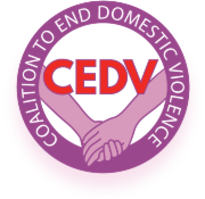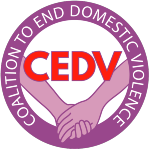VAWA-Funded Domestic Violence Programs Are Harming African-American Communities
Elizabeth Crawford, M.S., MPH, HES
The Violence Against Women Act (VAWA) is federal legislation which was signed into law in 1994 for the purpose of eliminating domestic violence. VAWA provides funding for domestic violence social service assistance programs, law enforcement agencies, prosecution offices and other domestic violence service provider programs. VAWA began as well-intentioned legislation but has several unintended consequences which are harmful to African-American domestic violence victims and the African-American community.
For the purpose of this written presentation, the unintended consequence of VAWA being discussed is the failure of VAWA-funded domestic violence programs to provide culturally-appropriate and culturally-sensitive services to African-American domestic violence victims.
Domestic violence is a crime and a serious public health problem affecting many African-American women and men across the United States. As a result of the abuse, victims often suffer from short-term or long-term psychological injuries even after their physical injuries have healed. Domestic violence victims of African-American ethnicity face a plethora of barriers which complicate their process of breaking free from a violent relationship. In addition to coping with the emotional effects of victimization, domestic violence victims may also be experiencing other life stressors such as unemployment, underemployment, food insecurity, lack of affordable housing, other violent crimes, poor physical and behavioral health and the lack of access to healthcare. Subsequently, victims are often forced to prioritize which problem is more important requiring immediate attention verses which problem can be ignored for now.
For African-American domestic violence victims, the legacy of chattel slavery, segregation, ongoing racism and day-to-day trials and tribulations often produce feelings of distrust, making it difficult to seek intervention for family violence from VAWA-funded domestic violence programs which often lack racial diversity in management and staff. African-American victims fear being subjected to more abuse at these programs in the form of racism, discrimination and other forms of maltreatment.
African-American male victims of domestic violence report that they are not only met with racism and discrimination from these VAWA-funded domestic violence programs but also experience gender bias. Male victims are unjustly refused assistance and are turned away. By minimizing their abuse and denying their reality, these VAWA-funded domestic violence programs perpetrate additional abuse against male domestic violence victims.
There are a few domestic violence programs across the nation which have diversity in their management, staff and board of directors. It is no surprise that these programs often attract more African-American domestic violence victims. However, these domestic violence programs are not usually embraced by state Domestic Violence Coalitions and therefore receive no VAWA funding. Although these domestic violence programs provide excellent services and are operated by educated and credentialed professionals, state Domestic Violence Coalitions make a concerted effort to prevent these programs from receiving federal, state and private funding. Unfortunately, state Domestic Violence Coalitions wield a great deal of power and influence. Denying funds to these domestic violence programs limit their service capacity and other functions. This is overt racism and is indeed harmful to African-American domestic violence victims and the community.
Because many VAWA-funded domestic violence programs are not well-equipped to meet the needs of African-American domestic violence victims, this population continues to be woefully underserved. Unfortunately, VAWA-funded domestic violence assistance programs deliver services according to a “one size fits all” model. To continue serving this population, it is critical for staff and management at VAWA-funded domestic violence programs to become knowledgeable about African-American life experiences and the population’s related needs.
Conclusion
To improve service delivery to African-American domestic violence victims, the Department of Justice (DOJ) Inspector General’s office should investigate why African-American domestic violence victims continue to be underserved after almost twenty years since the passage of VAWA. Also, it should be investigated why domestic violence programs which have diversity in staff and management are experiencing difficulties in receiving federal VAWA funding. These investigations must not be relegated to the Washington, D.C. Office for Violence Against Women, the state Domestic Violence Coalitions, a consulting firm or another group. The likelihood of a conflict of interest is too great.
The DOJ Inspector General Office should interview and consult with the professionals working in these marginalized domestic violence programs. Also, African-American domestic violence victims (male and female) should be interviewed. African-American domestic violence victims have not been afforded the same opportunities to receive effective and meaningful domestic violence assistance as their Caucasian counterparts have received. Domestic violence programs which have diversity in management and staff are being racially discriminated against by state Domestic Violence Coalitions. State Domestic Violence Coalitions have been given a great deal of power and influence in the decision-making process to determine which domestic violence program will receive VAWA and other funding. The state Domestic Violence Coalitions’ ill-advised funding decisions and their abuse of power are harming African-American communities across the nation.
Elizabeth Crawford, M.S., MPH, HES is the founder, director and therapist at the Domestic Violence Counseling Center (DVCC) which is located in Charleston, West Virginia. Domestic Violence Counseling Center is a licensed behavioral health center established for the provision of behavioral health services for all domestic violence victims and for all domestic violence offenders regardless of their race, ethnicity, gender, sexual orientation, etc. DVCC is licensed by the State of West Virginia Department of Health and Human Resources, Office of Health Facilities Licensure and Certification. For more information, Ms. Crawford can be contacted at elizabethcrawford@suddenlink.net or by telephone at (304) 342-7752.


